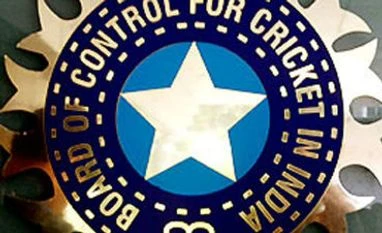The Supreme Court on Thursday asked the Board of Control for Cricket in India (BCCI) to implement directions of Lodha Committee for reforming cricket body.
The apex court has asked the BCCI to file an undertaking that it will comply with directions of Lodha panel.
"BCCI's defiant attitude will not lead anywhere," a Bench headed by Justice TS Thakur said.
The apex court will pronounce order on Friday.
Meanwhile, the cricket body has declined to give an undertaking that it will not disburse grant to state bodies and abide by all directions of Lodha panel.
The court also took exception to BCCI plea that state associations are not under it.
"Receiving money from BCCI is not the fundamental right of state associations. People want money from you (BCCI). You say they don't want to reform. Stop giving funds to such state bodies," the apex court said.
The apex court has asked the BCCI to file an undertaking that it will comply with directions of Lodha panel.
"BCCI's defiant attitude will not lead anywhere," a Bench headed by Justice TS Thakur said.
The apex court will pronounce order on Friday.
Meanwhile, the cricket body has declined to give an undertaking that it will not disburse grant to state bodies and abide by all directions of Lodha panel.
The court also took exception to BCCI plea that state associations are not under it.
"Receiving money from BCCI is not the fundamental right of state associations. People want money from you (BCCI). You say they don't want to reform. Stop giving funds to such state bodies," the apex court said.
Earlier in the day, the BCCI refuted claims made by Lodha Committee on violations of the Supreme Court directives. In its reply submitted in the court, the cricket board said that it's incorrect to say that they have not been responsive to the panel.
According to the BCCI counsel, the board has so far replied to the Lodha Committee through 40 emails which they will submit in the court, if required.
The board has also informed the bench comprising Chief Justice TS Thakur that a special meeting was convened where many of the recommendations that the Lodha Panel asked them to implement were rejected by a majority vote.
While Justice Thakur had categorically said that implementing the recommendations were not a matter of choice for the cricket board and if they refuse or further delay the process, the court may take stricter action. Today's stance by the BCCI clearly sends a message that it is not ready to budge.
The court was hearing BCCI's response on the Lodha Committee's report, which has recommended to oust the entire top brass of the cash-rich cricket body.
The panel's latest report has suggested the apex court to order the "immediate" supercession of current BCCI office-bearers for blatant violations of the July 18 Supreme Court judgment directing them to implement the panel's recommendations for transparency in cricket administration.
The President of the Board is Anurag Thakur and Secretary is Ajay Shirke.
More From This Section
In a complete defiance of the Supreme Court, the BCCI had on October 1 rejected key recommendations of the Lodha Committee, like one-state one-vote, age limit of 70 years and cooling-off period of three years, setting the stage for another round of confrontation with the a apex court.
The Board's Special General Body, which met on Saturday, deliberated on the recommendations and chose to stick to their stand by accepting only a few minor recommendations as most of the members were on the same page.
They have also not accepted the recommendation on selection panel, which called for three selectors, instead of five, and with Test experience.
The BCCI, has been in the eye of the storm since the betting and match fixing scandal in the 2013 edition of the Indian Premier League. While the players, teams and team officials implicated in the scandal have been given their sentences, the Supreme Court has appointed the Lodha Committee to clean up the cricket administration in the country.
As a result, in July 2016, the committee headed by Justice RM Lodha gave a list of recommendations for the BCCI to implement. These were accepted by the Supreme Court which then gave the BCCI six months to implement them, the progress report of which was due on October 6.
The board's rationale for being against the age cap is that many administrators over the age of 70 have remained fit and able, and such a limit does not apply to the country's politicians. The BCCI argued that an age cap of 70 would deprive the board and the state associations of considerable knowledge and experience, ESPN Cricinfo reported.
)